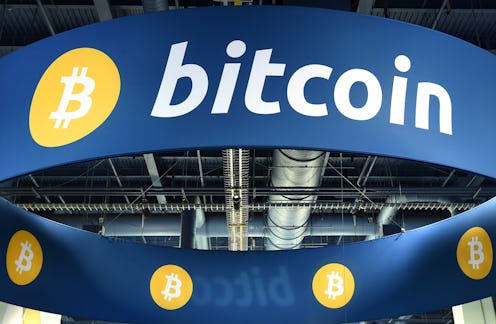News
Do People Still Use Bitcoin?
The head of one of the world's largest bitcoin exchanges was arrested this morning, prompting myself and a lot of others to ask — whatever happened to bitcoin? The online currency used to be all the rage, hitting its peak in 2013, but since then the buzz has died down, and I've yet to see banks closing shop. But it seems like Mark Karpeles, the CEO of Mt.Gox bitcoin exchange company who was arrested in Japan, is a pretty good example of the future of Internet currency.
Karpeles is accused of falsifying Mt.Gox's data to change the amount of their outstanding balance. Last year Mt.Gox filed for bankruptcy for debts up to $64 million, and they have now "lost" about $183 million worth of bitcoins, according to CNN. So how'd one of the biggest bitcoin exchanges get to this point?
Bitcoin was created in 2009 by a software developer called Satoshi Nakamoto, and was based on the idea of an open, transparent financial market. There are no bitcoin banks — buyers use a bitcoin exchange to buy the currency, and then they store it in a digital wallet until they send their coins directly to a buyer. Bitcoins are not backed by a centralized bank, nor are they focused on any one nations' currency, making international trade easier.
But according to The Washington Post, one of the largest draws is the guarantee of anonymity. Neither the buyer or seller's information (or what was bought) is recorded or accessible, just the buyer's individual wallet ID and the total spent. Which, as you might guess, makes bitcoin prime for criminal transactions.
At bitcoin's prime, the currency's value would rise as high as $900, and it expanded beyond just the Internet. Real-life vendors, including pizza restaurants and bakeries, would accept bitcoin as valid currency. If you have DISH TV, you can pay for your cable via bitcoins. People are still actively using bitcoins, but it's a small group, and the number of new businesses accepting bitcoins isn't looking good.
But now enrollment is down. Fewer people are buying into the exchanges, and Business Tech estimates that bitcoin has lost 30 percent of its value. Today, its estimated value is about $278, and fewer businesses are jumping on board to accept payments. And the illicit drug market had flourished via bitcoin, which isn't giving the currency a great name. A Coin Center survey shows that 44 percent of the population finds bitcoin untrustworthy, and almost 65 percent don't even know what it is.
Aside from the loyal followers and the black market, Business Tech posits that the only people interested in bitcoin anymore are investors and traders. The general public just isn't clamoring to take their money away from an FDIC insured bank to store it online, where it can be hacked, affected by a virus, or lost accidentally. Though a fascinating experiment in the concept of a transparent market, it's highly unlikely that bitcoin will ever make a comeback — at least not in its current form.
Images: Getty Images, BusinessTech
